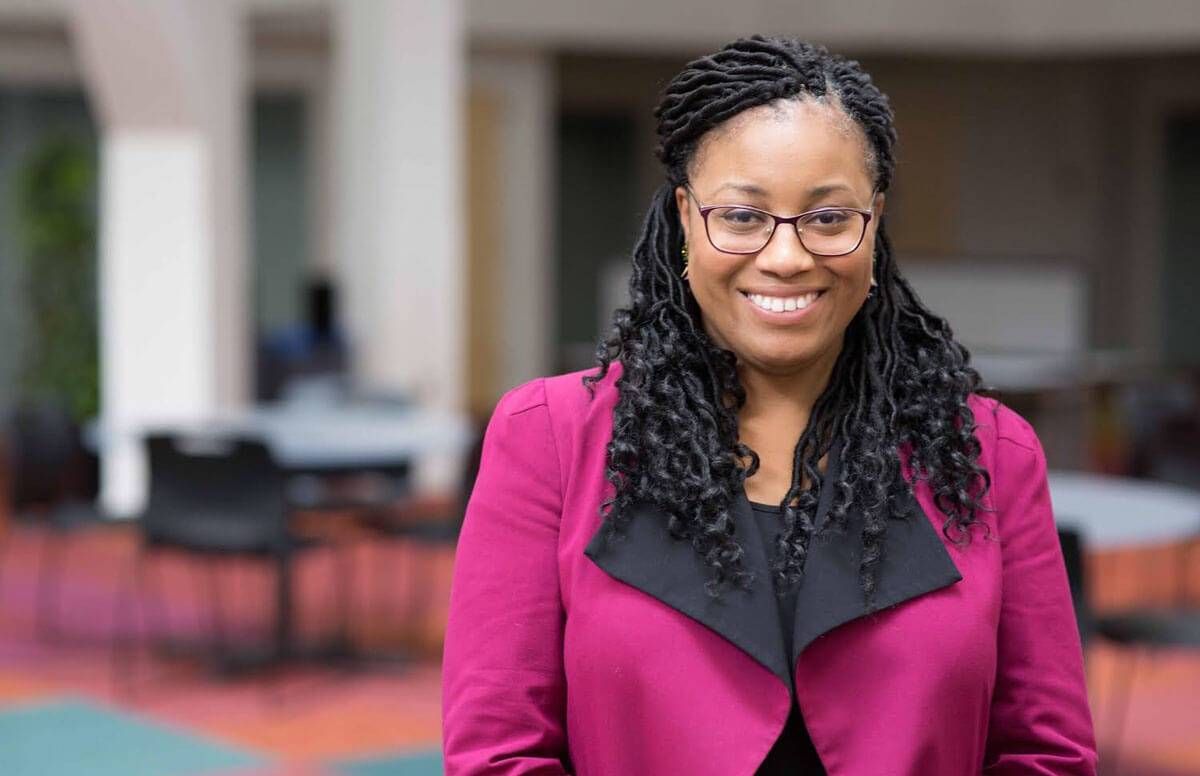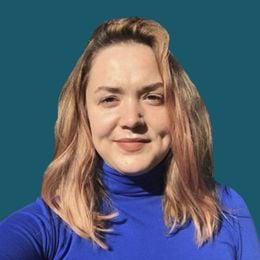Jamie Mitchell: Bettering Health Care for Older African American Men
This 2018 Influencer in Aging studies communication between older African American men and their physicians
Jamie Mitchell, an assistant professor of social work at the University of Michigan, is dedicated to improving the experiences older African American men have within the health care system. Mitchell, a 2018 Influencer in Aging, studies communications between older African American men and their physicians during cancer and chronic disease care, testing ways of intervening to increase support from family members and health providers and looking at how older African American men navigate their appointments and aftercare directives.

Prior to working at the University of Michigan, Mitchell studied social work through lenses of health care at the University of Tennessee Health Science Center and Ohio State University. Mitchell also serves as co-director of the Gender and Health Research Lab at the University of Michigan. She was named the University of Michigan’s 2016 Student Union Teacher of the Year.
Next Avenue: What did you observe either in your personal life or in your studies that led you to hone your research specifically on older African American men and their communication with physicians?
Jamie Mitchell: My father has always been a bit of a muse for me. I was often the person he would come to and ask questions because he knew I was involved in both social work and health care. He’s a car salesman and a baby boomer. I was intrigued by some of the challenges he was having around very basic chronic health conditions that many people have. If I would accompany him to the doctor, I was coming into those interactions and getting different results [doctors were responding differently to her than they would to her father]. I think it’s because I was more highly educated, and I had more of a proximity to health care.
The more I began to work with my dad and also with other folks in my family, the more I began to see how important health communication really was — not only their doctor-patient interactions when they went into the doctor’s office, but also at the pharmacy or trying to schedule appointments or interacting with a specialist. That communication really seemed to make the difference in whether or not they felt like they were empowered to go and change their behavior or adhere to some routine. I began the transition a few years ago from doing specifically cancer screening and early detection work to really looking hard at the role that communication plays in getting quality health care to this specific population.
I began to do some research and found out that broadly speaking, African American men have one of the worst health profiles in the United States. They don’t live as long as white women, white men or black women — and certainly not as long as other racial and ethnic groups. They tend to die sooner from diseases that other folks can manage and live longer with, for example prostate cancer. I thought: This is a population that needs more researchers, and I happen to be in a family with black men who also have health needs that are not being met. So I feel like this is an area where I can really make a difference.
What do you think older African-American men need from the health care system that they’re not getting?
From some interviews I did last summer, some older black men felt their care was rushed and inattentive. Obviously physicians are busy, but it’s often that patient’s only opportunity — maybe for several months even — to get questions asked and answered, to feel confident about what they need to do to get better. And so it really is imperative that the physician makes sure there are no remaining questions.
Some men felt like because they were lower income or had Medicaid or Medicare that they might be getting slightly different care. They couldn’t be sure that it was less quality, but they just felt like they could feel a difference. So there was this sense that socioeconomic status sometimes makes a difference in how people view you. That might discourage you from returning for follow up, because no one wants to feel condescended to, nobody wants to feel like what they have is somehow not acceptable or is the bare minimum or maybe they’re not going to get all the tests they need because their insurance isn’t that great.
How could the health care system better serve older African-American men?
There’s a model in health communication that many people follow called patient-centered care. Under that is patient-centered communication. This is a model that really strives to empower patients; to give them as much agency as possible in making decisions about their own health and involving the family when the patient wants that. I think generally that is something we should strive for in health care to try to make the situation better not only for older black men, but actually for all patients. We have plenty of studies that show the link between good communication and good ultimate health outcomes.
Regarding the health of older Americans specifically, where do you see other gaps in research?
I still think there are some populations — like racial ethnic minority populations and also LGBTQ older adults — who experience discrimination and perceptions that they are not welcome in certain spaces like the doctor’s office. Those things I think are still underreported. I’m not seeing a boost of articles and research and grant funding, though just recently the National Institutes of Health did put out a call for sexual and gender minority health research. But it wasn’t specific to older adults. Often, those dollars go to HIV prevention or mental health for younger populations, but they neglect that there is a growing population of LGBTQ older adults who are coming out and trying to manage their health and also feel unwelcome or discriminated against in different contexts because of their identities.
What impact do you hope your work has on the broader medical community and older African American patients?
What I hope my impact will be is on the patient side. I hope that I can come up with some great idea or refine some great idea — some intervention — that can be universally delivered in communities. Not necessarily only in the doctor’s office, but in people’s homes, maybe via technology, that will help black men walk into doctor’s offices confidently to get their questions asked and answered, to feel like whatever health needs they have — they have the tools to speak up about those and advocate for themselves.
I hope that I can get work that can encourage older black men in particular to have more conversations with their family members and friends about what’s going on with them. Because one of the things that we see — not just with black men but with men in general — is that it’s much more stigmatizing to talk about health among men than women. When those older black men engage with the health care system, [I'd like to help] make them feel empowered, advocated for, [and if they] have any barriers, helping them feel like they can navigate those barriers and not be defeated or feel like they are not at the center of those interactions. My goal is to be a patient advocate and to create tools to help patients advocate for themselves.


